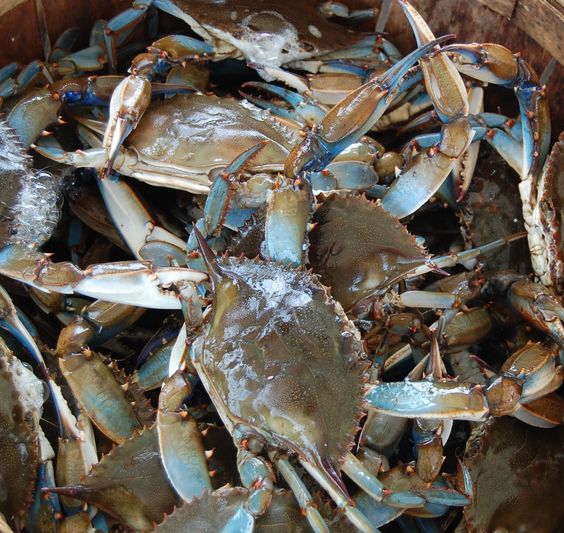Tilapia Organic Farming: A Comprehensive Guide to Sustainable Aquaculture Practices
Tilapia organic farming has gained significant traction in recent years due to increasing consumer demand for sustainable and healthy food options. Tilapia, a freshwater fish species, is one of the most widely consumed fish globally, recognized for its mild flavor and nutritional benefits. The organic farming of tilapia involves adhering to strict guidelines that promote environmental sustainability, animal welfare, and the absence of synthetic chemicals or genetically modified organisms (GMOs) in the production process.Organic aquaculture focuses on producing fish in a way that mimics natural ecosystems, ensuring that fish are raised in clean, healthy environments. This method not only supports biodiversity but also enhances the quality of the fish produced. The organic certification process requires farms to implement practices that minimize environmental impact while ensuring the health of the fish and the surrounding ecosystem.
Contents
Benefits of Tilapia Organic Farming
The benefits of tilapia organic farming extend beyond consumer health; they also encompass environmental and economic advantages:
Health Benefits
- Nutritional Value: Organic tilapia is rich in protein, omega-3 fatty acids, and essential vitamins and minerals. The absence of harmful chemicals in organic farming practices ensures that consumers receive a healthier product.
- Reduced Contaminants: Organic tilapia farming prohibits the use of antibiotics, hormones, and synthetic pesticides, resulting in fish that are free from harmful residues.
Environmental Benefits
- Sustainable Practices: Organic farming promotes sustainable practices such as crop rotation, polyculture, and the use of organic fertilizers, which contribute to soil health and biodiversity.
- Water Quality Improvement: Organic systems often incorporate biofloc technology or aquaponics, which enhance water quality and reduce waste through natural filtration processes.
- Biodiversity Conservation: By avoiding harmful chemicals and promoting natural ecosystems, organic farming supports local wildlife and plant species.
Economic Benefits
- Market Demand: The organic food market is rapidly expanding, with consumers willing to pay a premium for organic products. Organic tilapia can command higher prices compared to conventionally farmed fish, providing farmers with better profit margins.
- Reduced Input Costs: Although initial setup costs for organic systems may be higher, long-term operational costs can be lower due to reduced reliance on purchased feeds and chemicals.
Goals of Tilapia Organic Farming
The primary goals of tilapia organic farming include:
- Enhancing Fish Health: Ensuring that fish are raised in optimal conditions that promote their health and growth.
- Minimizing Environmental Impact: Implementing practices that reduce pollution and conserve natural resources.
- Providing Safe Food: Producing fish that are free from harmful substances, thereby ensuring food safety for consumers.
- Promoting Sustainable Livelihoods: Supporting local economies by providing jobs and promoting sustainable agricultural practices.
Ideas and Topic Suggestions for Tilapia Organic Farming
- Integration of Aquaponics: Exploring the benefits of combining fish farming with plant cultivation in a symbiotic environment.
- Selective Breeding Programs: Investigating the impact of selective breeding on the growth performance and health of organic tilapia.
- Utilization of Alternative Feeds: Researching the use of organic plant materials, such as duckweed, as sustainable feed options for tilapia.
- Community-Based Farming Initiatives: Developing cooperative farming models that empower local communities and promote shared resources.
- Consumer Education: Creating awareness campaigns to educate consumers about the benefits of organic tilapia and sustainable aquaculture practices.
Advantages of Tilapia Organic Farming
The advantages of tilapia organic farming are multifaceted, impacting health, the environment, and the economy:
Health Advantages
- Improved Fish Quality: Organic tilapia is often fresher and tastier, appealing to health-conscious consumers.
- Safety Assurance: The stringent regulations governing organic farming ensure that the fish is free from harmful chemicals and contaminants.
Environmental Advantages
- Ecosystem Health: Organic farming practices help maintain the ecological balance by promoting biodiversity and reducing pollution.
- Resource Efficiency: Techniques such as biofloc and aquaponics optimize resource use, leading to more efficient production systems.
Economic Advantages
- Higher Profit Margins: The premium pricing of organic tilapia allows farmers to achieve better financial returns.
- Market Growth Potential: With increasing consumer interest in organic products, there is significant potential for market expansion.
Reflect on Your Progress,Before diving back into your project, take some time to reflect on what you accomplished before your break. Review any notes, documents, or recordings that can remind you of your previous work. This will help you regain context and understand the current state of your project.
Organize Your Workspace,A cluttered workspace can hinder productivity. Take the time to clean and organize your physical and digital workspaces. Ensure that all necessary materials, resources, and tools are easily accessible. This preparation can create a conducive environment for focus and creativity.
Tilapia organic farming presents a promising avenue for sustainable aquaculture that aligns with consumer preferences for healthy and environmentally friendly food options. By focusing on best practices that enhance fish health, minimize environmental impact, and promote economic viability, tilapia organic farming can contribute significantly to global food security while preserving natural ecosystems. As the demand for organic products continues to rise, embracing organic tilapia farming can provide farmers with a competitive edge in the market while fostering a healthier planet.






